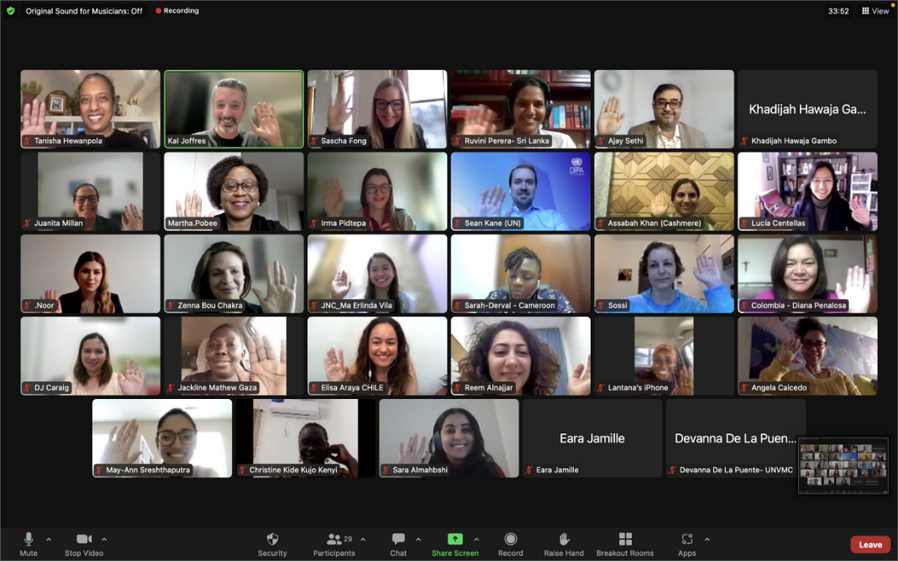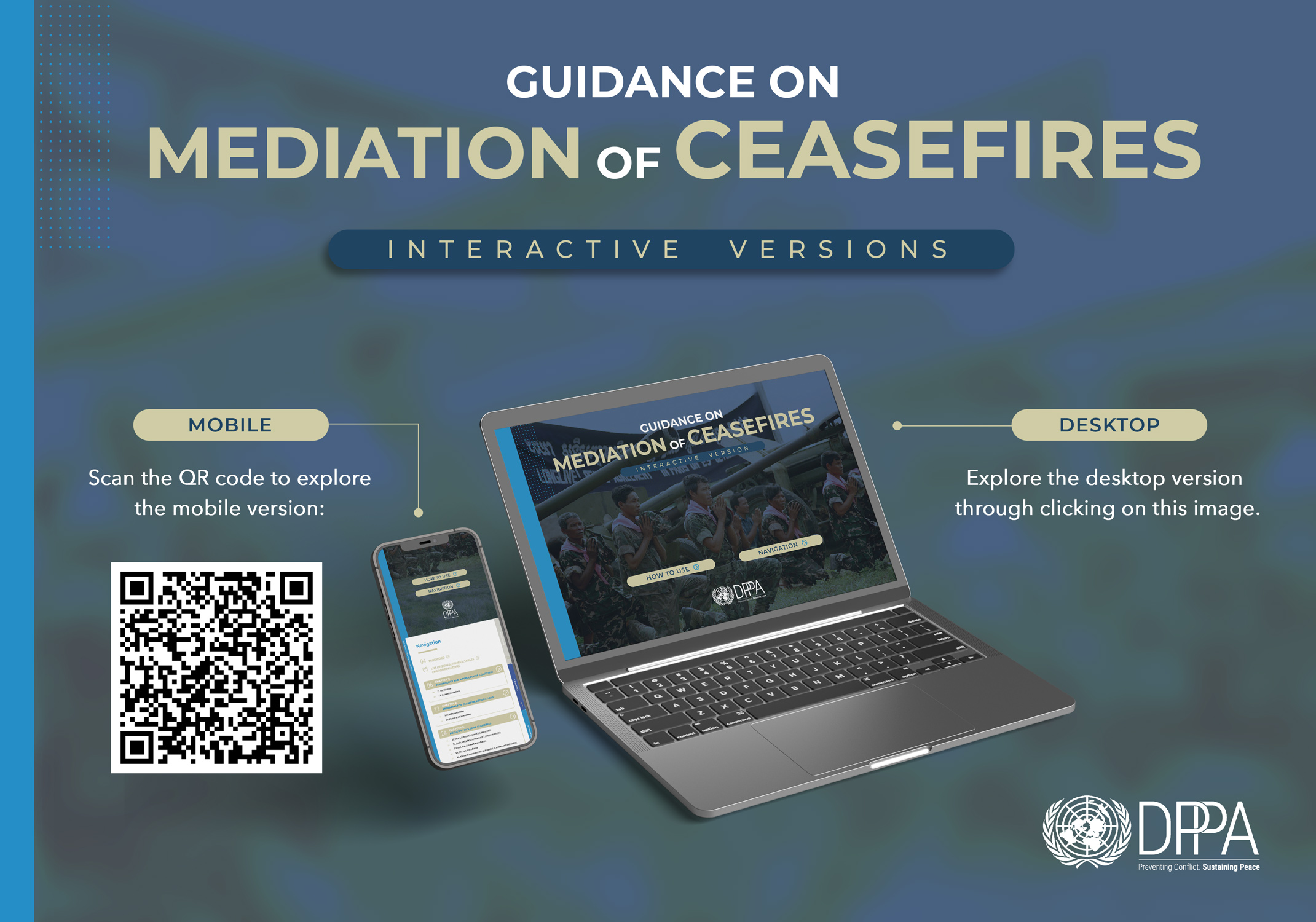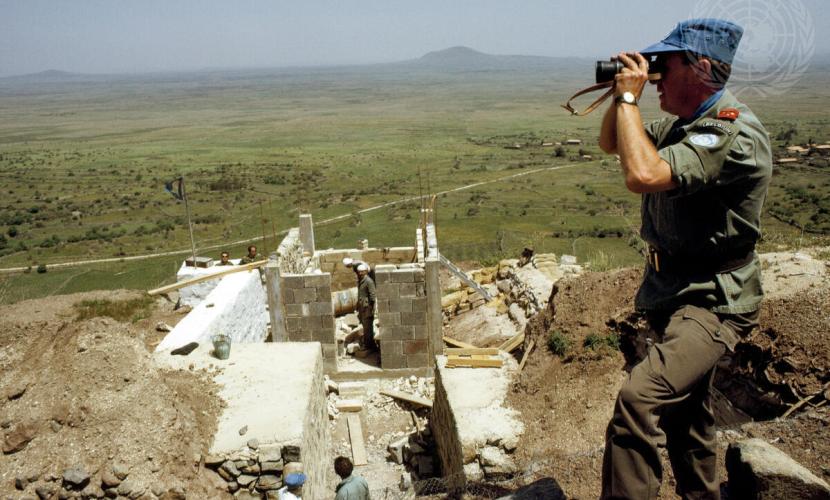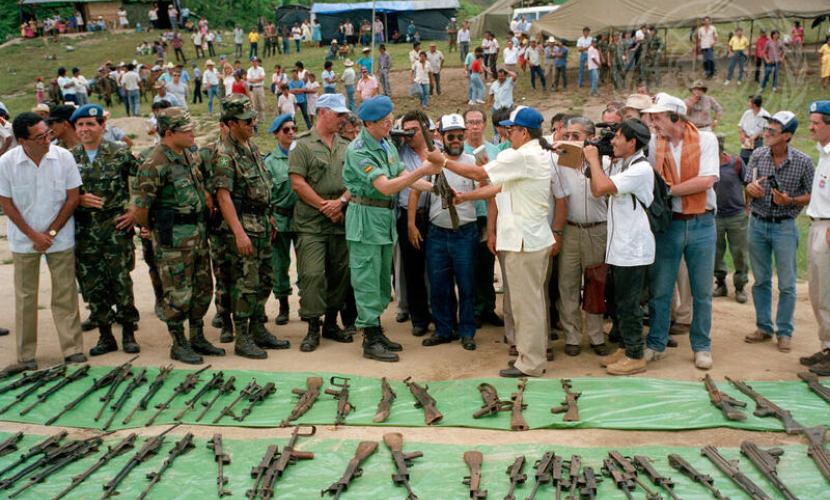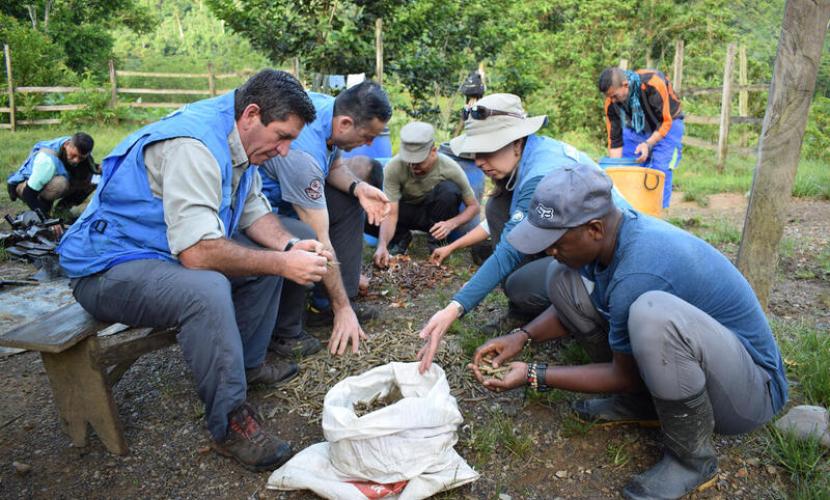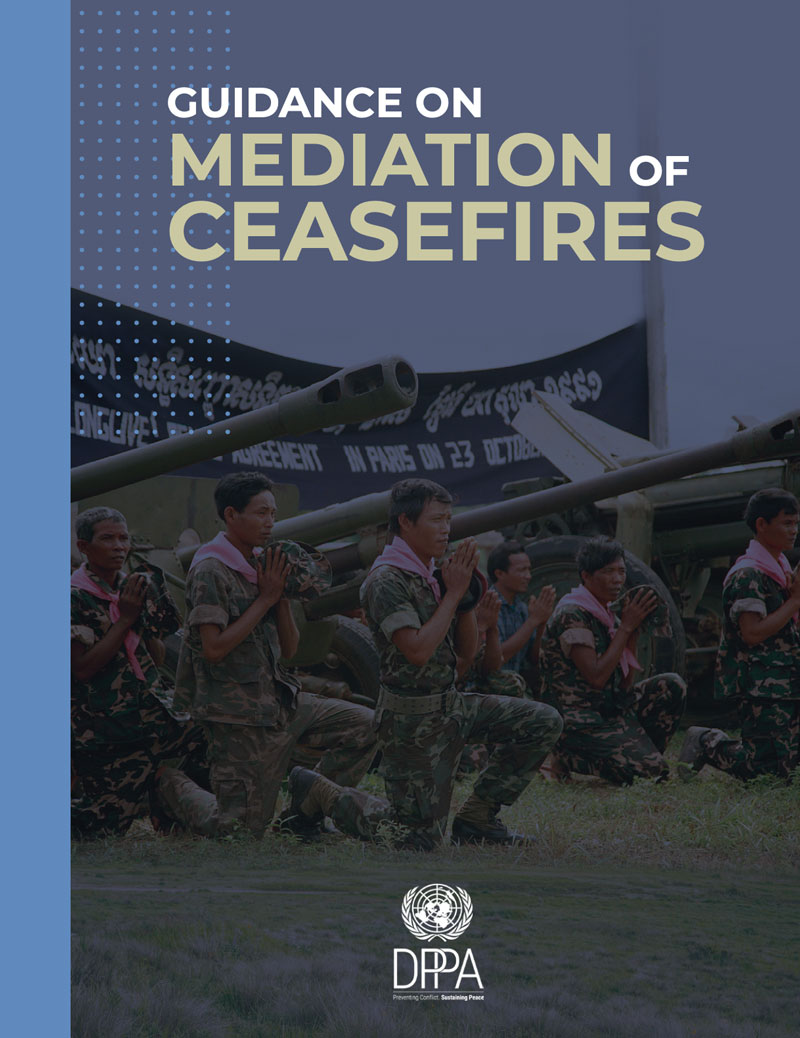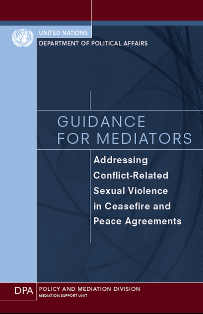Agreements and mechanisms to stop or manage violence remain an inescapable component of peace processes to end armed conflict. Ceasefires are often one of the first issues that belligerents seek to negotiate, and in civil wars can serve as a foundation for inclusive and comprehensive peace talks. In the places where comprehensive talks are not yet possible, there is increasing interest worldwide in partial, temporary, local or humanitarian ceasefires as tools to help to de-escalate conflict and reduce violence.
Since Security Council resolution 50 (1948) calling for a cessation of hostilities in Palestine to be monitored by the UN, the Organization has been involved in hundreds of ceasefires. Drawing upon this deep institutional experience, MSU has developed a first-of-its-kind strategic guidance on the negotiation and management of ceasefires and provides operational support and capacity building in this area to a wide range of partners globally, including senior UN officials, Member States, Regional Organizations and other partners.
Strategic Guidance
Ceasefires are as old as armed conflict. Each one is unique and pursued in a broader political, security, economic, social and humanitarian context. Careful analysis of this dynamic context – and particularly its political dimensions – can assist mediators in working with the parties to formulate a ceasefire whose scope is realistic.
The 2022 DPPA Guidance on Mediation of Ceasefires was a first-of-its-kind globally and intended as a key reference guide for stakeholders seeking paths out of armed conflict. It has now been translated in several UN languages (Arabic, French, Russian and Spanish). As of 2025 it is also available in an interactive format that includes versions optimized for phones, tablets and laptop screens as well as enhanced navigation tools.
Operational support
MSU responds to dozens of requests a year for targeted technical expertise, operational support and advice on ceasefires and security arrangements from UN and non-UN partners. This support is regularly provided to both UN and non-UN partners by the senior advisors of Mediation Support Unit and Standby Team of Senior Mediation Advisers mechanism (including part-time ceasefire specialists).
Such operational support could include, but is not limited to, the following activities:
- Desk review, analysis or provision of technical advice with respect to a specific thematic area of a ceasefire. MSU regularly provides technical advice to UN missions with mandates to negotiation or assist with the implementation of ceasefires, including in Colombia, Libya and Yemen;
- Remote or on site deployments to provide specific deliverables related to the design, negotiation or management of a ceasefire. In 2024, MSU supported proximity talks convened by the Personal Envoy of the Secretary-General for Sudan to explore measures and options to ensure the distribution of humanitarian assistance and protection of civilians across Sudan;
- Support in the planning and delivery of tailored thematic workshops and engagement sessions with national stakeholders during a ceasefire process. In 2023, MSU assisted the United Nations Monitoring and Verification Mission in Colombia and Norway to organize separate workshops for the Government of Colombia and the Ejército de Liberación Nacional on global experience in the negotiation and management of ceasefires.
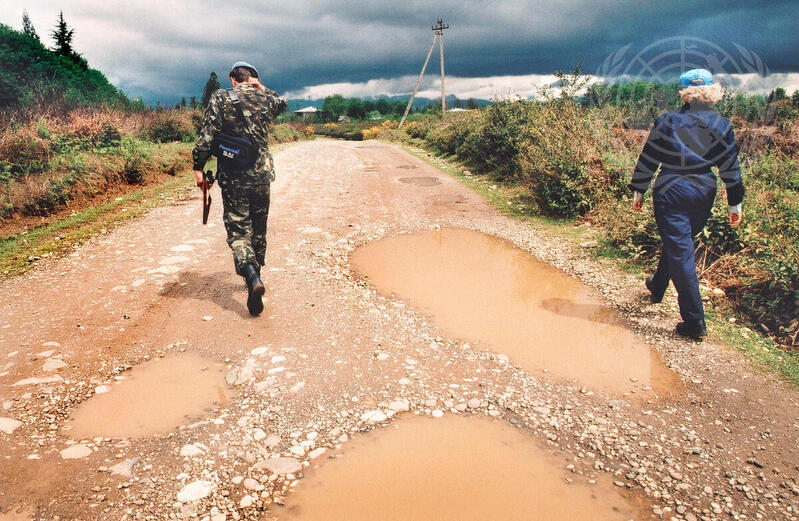
Capacity Building
The negotiations or mediation of ceasefires and security arrangements involve discussions on a range of complex technical issues. Stakeholders must have the required technical knowledge of the concepts that enables them to present their vision and positions in a logical and coherent manner. Capacity building is also aimed at increasing their ability to create more realistic options and identify common areas of potential agreement.
DPPA therefore complements its operational activities with an ambitious global approach to capacity building of UN staff, peacemaking partners and conflict parties. Starting in 2012, DPPA has co-delivered the annual UN Ceasefire Mediation Course with Norway and Switzerland. While open to UN staff, this course uniquely targets representatives of government and non-state parties to conflict. Recognizing that further targeted efforts are required to overcome obstacles to women’s participation in ceasefires, in 2021 DPPA launched an online Women in Ceasefire Negotiations Course (WiCC) that is focused on women from conflict settings.
In collaboration with partners, MSU also develops tailored thematic workshops and engagement sessions with national stakeholders during a ceasefire process.
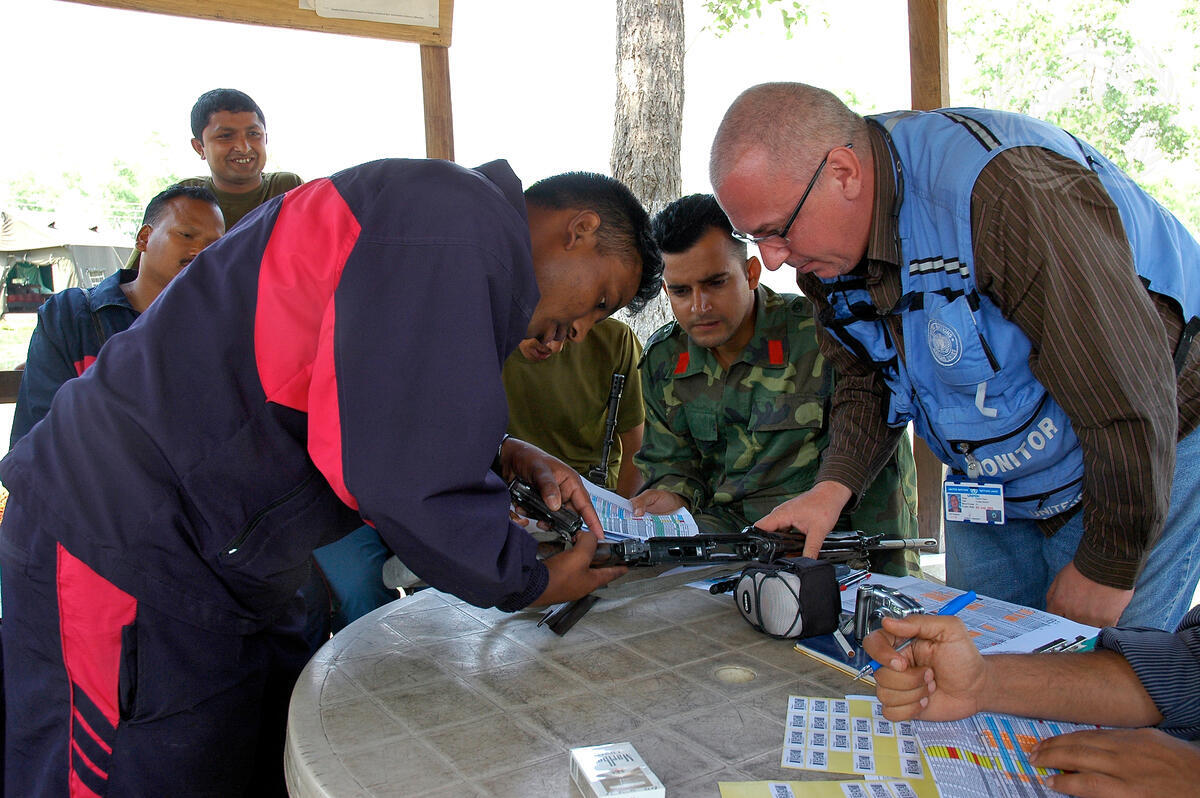 UN Photo/Agnieszka Mikulska
UN Photo/Agnieszka Mikulska
Annual UN Ceasefire Mediation Course – Oslo, Norway
MSU conducts the United Nations Ceasefire Mediation Course on an annual basis. This training is conducted in partnership with the Norwegian Defense International Centre /Norwegian Ministry of Foreign Affairs and Swiss Federal Department of Foreign Affairs.
The training is attended by mid- and senior-level officials of the United Nations and its partners who currently work in an environment where a ceasefire arrangement is either being mediated or already in place and who are directly involved in developing, supporting or managing the ceasefire arrangement. In addition to field and headquarters-based UN staff, the training is also attended by selected representatives from member states, regional or sub-regional organizations and parties to conflict who bring realistic insights and rich experiences to the course.
Annual UN Women and Ceasefires Online Course
Globally women continue to be largely underrepresented as direct participants in ceasefire negotiations and implementation. This extended online course seeks to increase the number of women with the technical skills to participate in ceasefire and security arrangements negotiations and implementation. It is conducted on an annual basis with approximately 30-35 women from a diverse set of global contexts. The course is being undertaken in furtherance of DPPA's commitment to the implementation of the Women, Peace and Security (WPS) agenda, in particular to support women’s full, equal and meaningful participation in peace efforts and strengthen the gender-responsiveness of security arrangements. For any inquiries, please contact women-in-ceasefires@un.org.
